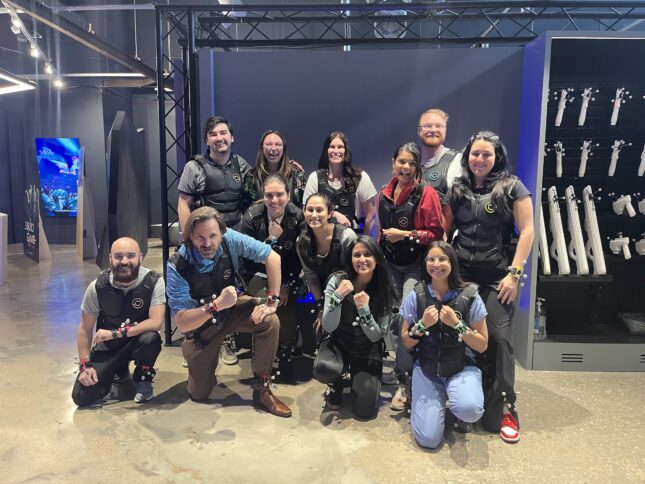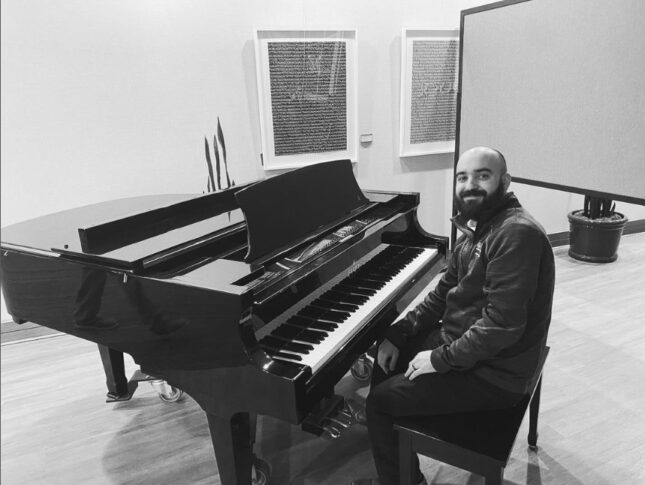Wellness

Fellow wellness is incredibly important to our program and to Washington University in St. Louis School of Medicine. We have an active Graduate Medical Education Consortium that aims to improve fellow well-being by developing individual and organizational strategies to improve health, reduce stress and burnout, and enhance the joy and meaning in their work. Fellows have access to free psychotherapy as well as psychiatric care, discounted rates to fitness centers, and other programs that support well-being. You can learn more about these benefits and resources the GME Consortium provides on their website, GME Consortium Wellbeing.
IMG Wellness Initiative
The IMG Wellness Initiative is comprised of residents, fellows and attendings across multiple medical specialties who aim to improve the well-being of IMG residents at WashU. They work to enhance the WashU GME Diversity, Equity, and Inclusion efforts to include a focus on IMG well-being by creating institutional support, advocacy, and a networking system for IMG trainees. You can learn more about this initiative and resources available on their website, IMG Wellness Initiative.

Link: New York Times 36 hours in Saint Louis
“The city, with its once-quiet, now-vibrant downtown, offers new restaurants, microbreweries, and a rich array of cultural venues, including a museum that pays tribute to the blues.”

Saint Louis
The City of St. Louis is a great place to live and our fellows have plenty of time to explore and enjoy it! We pride ourselves on having a close-knit fellowship where colleagues become family. Plus, we love our fellows’ partners, pets, and kids! You can often find us enjoying the beautiful weather in one of our many public parks, cheering for the Cardinals baseball team or the Blues hockey team, dining at a James Beard-nominated restaurant, or hanging out at one of the city’s many free festivals or cultural events.

The program provides fellows with four weeks of paid personal time off each academic year, or a fraction thereof if the appointment period is less.
The program provides fellows one week of paid conference time off each academic year, or a fraction thereof if the appointment period is less. Conference time off is only for attending an academic conference.
The program provides fellows with two weeks of paid sick time off each academic year, or a fraction thereof if the appointment period is less. Sick time off consists of moments of personal illness or due to your medical condition (including medical conditions related to pregnancy and childbirth). Sick time off to care for a family member who is ill or has a medical condition is also acceptable.
We ask fellows who need to take more than 14 days of non-vacation time, to schedule a meeting with the Program Coordinator and Training Director to discuss the leave of absence process. In compliance with program requirements concerning the effect of leaves of absence on satisfying the criteria for completion of the training program and the certifying board, the American Board of Psychiatry and Neurology (ABPN), an approved leave may extend your training.
Fellows who exhaust their paid personal and sick days due to taking an approved medical, parental, or caregiver leave will have two additional weeks of paid personal time off to extend a paid leave or to take personal days later in the same, or the next, academic year. The training program offers this time off once during the training program.
The program provides fellows three days of paid bereavement time off per immediate family member. Bereavement time-off consists of funeral attendance or to fulfill other responsibilities regarding funerals or the settlement of estates. For bereavement time-off, immediate family members are parents, siblings, spouse or domestic partner, child (including biological, legal guardianship, or adopted), grandparents, great-grandparents, and grandchildren. A domestic partner is a person who shares a residency with a romantic partner without a legally recognized union. Also included are foster, domestic relationship, in-law, and steps of all the previously listed.